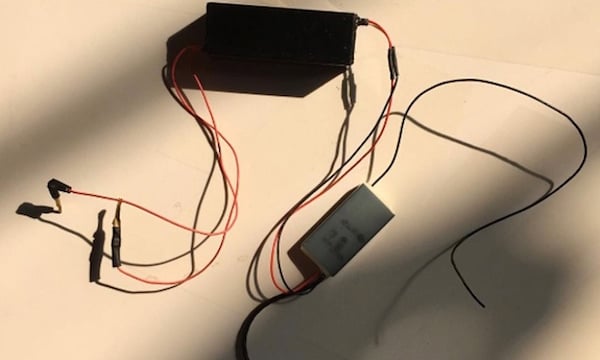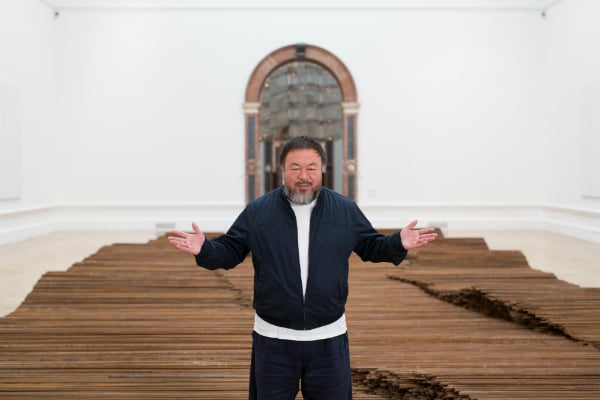People
Ai Weiwei Discovers Surveillance Equipment Hidden in His Beijing Studio
China continues to keep tabs on the artist's activities.

China continues to keep tabs on the artist's activities.

Henri Neuendorf


Ai Weiwei with his installation Straight, Royal Academy of Arts, 2015.
Photo: © Dave Parry Courtesy Royal Academy of Arts, London.
Chinese artist and dissident Ai Weiwei claims to have found listening devices in his Beijing studio. The artist posted photos on Instagram suggesting that bugs had been concealed behind plug sockets.
A video posted on Ai’s Instagram account shows someone setting off firecrackers next the to the device. “Can you hear this?,” the caption asks.
“There’s always a surprise,” Ai wrote beneath a photo of the bug, also shared on his Instagram feed.
According to the Guardian, Ai later confirmed that he discovered the devices following his return to Beijing after traveling to Europe to visit his son in Berlin and to attend the opening of his exhibition at London’s Royal Academy.
In a tweet to Liu Xiaoyuan, a human rights lawyer and friend, Ai wrote that he “found a bunch of ‘bedbugs.’”
Liu tweeted that the listening devices were found while the artist’s studio was undergoing renovation, and suggested that the devices may have been installed up to four years ago.
In 2011, Ai was arrested and held for 81 days without charge or criminal conviction in a move that his supporters claim was an attempt to silence his critical opinions about China’s stance on human rights, democracy, and free speech.
Following his release, Chinese authorities retained Ai’s passport for four years, until they lifted his travel ban in July.
The discovery of listening devices in his studio shows that, despite Ai’s thawing relationship with the Chinese government, the authorities are still sufficiently wary of the disruption that he could cause to keep tabs on his activities.
In an interview with German daily Süddeutsche Zeitung in August, the artist indicated that he thought that he was still being monitored by the state. “They’re following exactly what I say and do,” he said at the time. It turns out he was right.